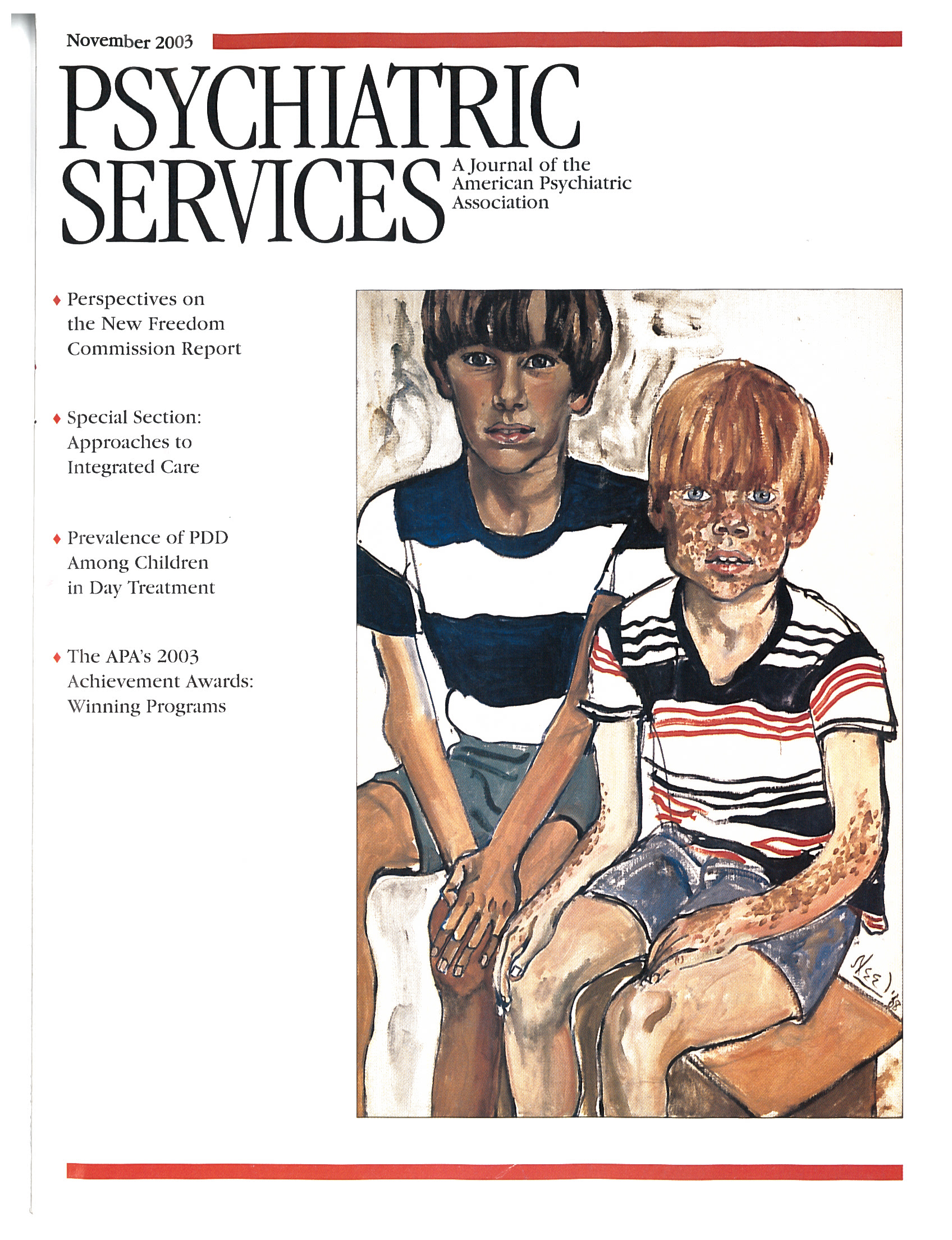Assertive community treatment is rapidly becoming the standard of care of persons with severe and persistent mental illness who are living in the community (
1,
2). Expanded funding, training opportunities, and treatment guidelines in the United States promote assertive community treatment as the psychosocial treatment of choice for persons with schizophrenia. In
Assertive Outreach in Mental Health: A Manual for Practitioners, authors Tom Burns and Mike Firn have translated a theoretical model into a practical approach for mental health staff working in the community. Burns and Firn have both worked as part of an assertive community treatment team in the United Kingdom since 1994 and have taken their experiences and integrated them with standardized guidelines for assertive community treatment into this highly readable manual. In doing so, these authors have written a counterpoint to a more dogmatic approach (
3) that is often used in the United States in the establishment of assertive community treatment teams.
The authors divide the text into three sections: conceptual issues, health and social care practice, and structural issues. The first section serves as a strong introduction to anyone who is interested in learning about assertive community treatment. Challenging the American perspective that assertive community treatment developed uniquely in the United States and has since been exported abroad, Burns and Firn trace the development of assertive community treatment in the United Kingdom to the long-standing model of community psychiatric nurses and the community-based primary care model around which health care delivery is organized. Again serving as a good introduction for readers who are less familiar with assertive community treatment, this section of the text provides discussions of the core elements and structure that define assertive community treatment, the essential role that medications play in the treatment of serious mental illness, and the cultural and ethical dilemmas that arise in the delivery of assertive community treatment.
Burns and Firn devote the main body of the text to the health and social care practices that are useful to working in the community. Using a helpful model throughout the chapters, they first define a problem—for example, poor adherence to prescribed medication regimens—and then use case examples from their own work to discuss methods used in assertive outreach to address the problem. The authors also provide brief descriptions of common psychiatric illnesses, which will be overly simplistic for readers who have a professional background but will be helpful for those beginning their work in the field. The intermingling of discussions of disease categories, such as schizophrenia, and social problems, such as managing personal finances, disrupts the continuity of the reading at times but accurately depicts the intertwined nature of illnesses and social problems that assertive community treatment staff tackle and that persons with serious mental illness confront daily in the community.
In three final brief chapters, the authors revisit the structure of an assertive outreach team, providing discussions of the core elements of the treatment, selection and training of staff, and development and delivery of treatment. This section serves as a guide to the day-to-day running of a team, although it may lack the specificity necessary to provide the leaders of a team with a structure for managing a large and diverse program. The authors rely on informal and flexible approaches, which may stem from the years they spent working with an assertive community treatment team rather than from an interest in replicating or studying the effectiveness of a particular model.
Burns and Firn have succeeded in writing a book that serves as a manual for practitioners, as the book's title suggests, and that utilizes their experiences in a flexible approach incorporating many aspects of assertive community treatment in the care of persons with severe and persistent mental illness. Although the approach is less faithful to the stricter models often used in the United States—both in clinical and research settings—the discussions reflect differences seen elsewhere in assertive community treatment between the United States, the United Kingdom, and other countries in Europe (
4).
Assertive Outreach in Mental Health will provide practitioners in the field with an understanding of the basic tenets of assertive community treatment and will help them apply treatment in an individualized, flexible manner.

